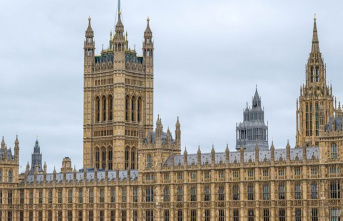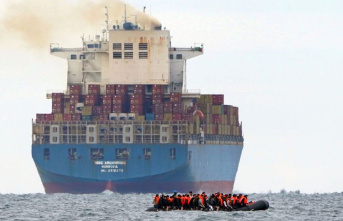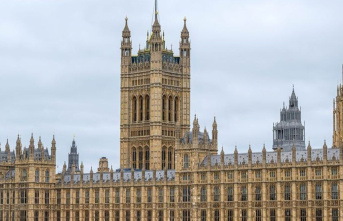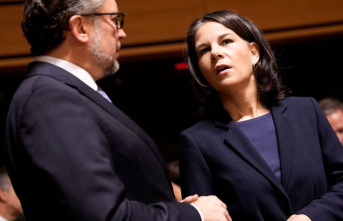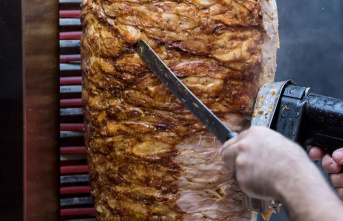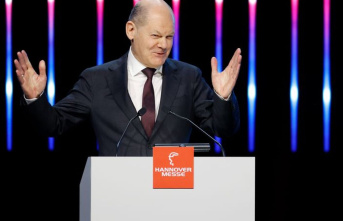Germany and the US want to continue to closely coordinate their support for Ukraine and their dealings with Russia. That is one of the main messages that Chancellor Olaf Scholz (SPD) and US President Joe Biden sent out in Washington. The two heads of government told the press that they are working "in step with each other" - for example on the issue of arms deliveries to Ukraine.
Otherwise, little of the topics of discussion became public knowledge. Scholz had only traveled to Washington for a short working visit - for a personal meeting with Biden.
In brief statements at the start of the meeting, the two invoked the transatlantic partnership and close cooperation with a view to the war in Ukraine. Biden thanked Scholz for a "strong and consistent leadership". In the past year, Germany has provided crucial military and moral assistance to Ukraine. The Chancellor also promoted "historic changes" in Germany. The drastic increase in defense spending and the move away from Russian gas were difficult decisions. Biden stressed that the US and Germany have always worked together in support of Ukraine and will continue to do so.
Scholz praises cooperation with the USA
Scholz said in English that joint support for Ukraine over the past year was very important. "Now it is very important to send the message that we will continue this for as long as necessary." And he praised the cooperation with the USA: "I really appreciate the very good cooperation between the two of us."
Afterwards, Scholz and Biden sat together for a little over an hour, behind closed doors. There was no press conference afterwards. As is customary after such meetings, the White House issued a brief, four-sentence written statement. It said the two discussed ongoing efforts to provide security, humanitarian, economic and political assistance to Ukraine, and discussed other global issues. The format had caused some guesswork in advance. Scholz and those around him repeatedly emphasized that it was simply a matter of personal exchange in the middle of a complicated world situation.
Irritations in the battle tank debate
Recently there had also been discord between Germany and the USA. Conflicting statements from the White House and the Chancellery on the question of how the promise of battle tanks to Ukraine came about had caused irritation.
At the end of January, after much back and forth and parallel to the German commitment to supply Leopard tanks to Kiev, the US government also announced that it would deliver 31 M1 Abrams main battle tanks to Ukraine. However, the US government emphasized that it would take "many months" for these to arrive on the battlefield in Ukraine. Biden's security advisor Jake Sullivan said shortly before Scholz's visit that Germany had made the delivery of US tanks a condition for the commitment of German Leopard tanks. The federal government denied that. Biden and Scholz did not comment publicly on Friday.
No word on the Anti-Inflation Act
Scholz and Biden also omitted another topic with potential for conflict in their public statements: the anti-inflation law. Biden launched a multi-billion dollar US investment program in the summer. It provides for investments in climate protection, but ties many subsidies and tax credits to companies using US products or producing them themselves in the USA. This is met with a lot of criticism in Berlin and Europe - out of concern for competitive disadvantages. The topic is also likely to come up during a visit by EU Commission President Ursula von der Leyen to Washington next week. Von der Leyen is expected to speak with Biden at the White House on Friday (March 10).
It was the chancellor's second visit to the White House in almost 15 months of his tenure. At the beginning of February 2022, Scholz was in Washington for an inaugural visit. Even then, Ukraine played the central role. At that time, tens of thousands of Russian soldiers had already deployed at the border of the neighboring country. A good two weeks later, on February 24, 2022, Russia then began the invasion.


